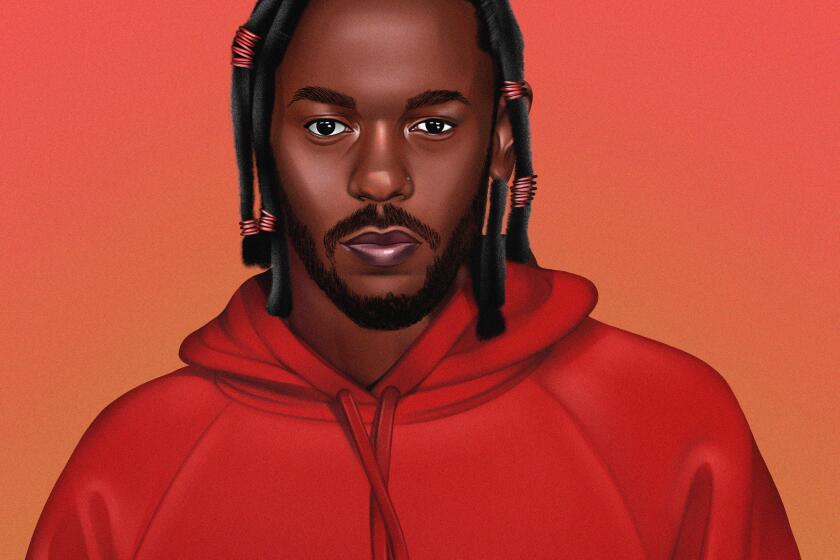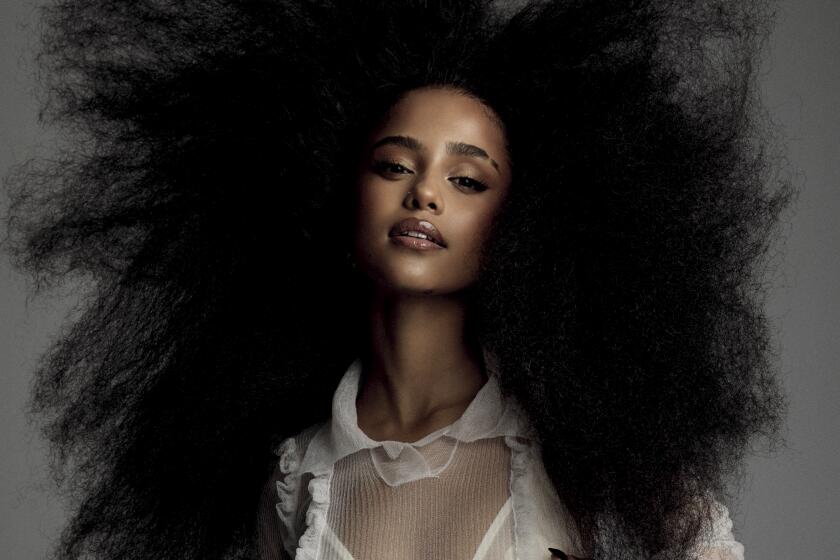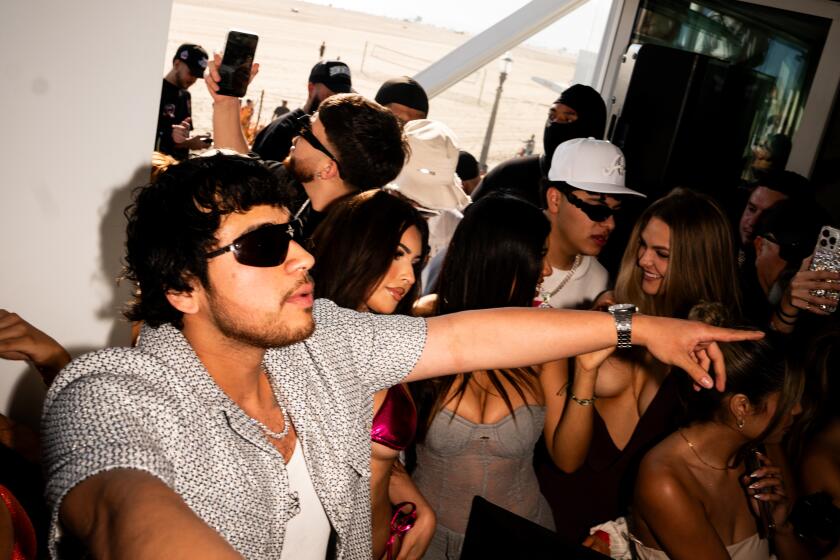How Billie Eilish, Lizzo and Lil Nas X rewrote the rules for stardom and took over the Grammys
As recently as 18 months ago, much of the world had never heard of Billie Eilish, Lizzo or Lil Nas X.
On Wednesday, though, the three artists became the toast of the music industry when nominations were revealed for the 62nd Grammy Awards — and each was bestowed with more nods than established superstars such as Taylor Swift, Beyoncé and Lady Gaga.
In a first in Recording Academy history, two artists — Eilish, the teenage goth-pop phenom who grew up home-schooled in Highland Park, and Lizzo, the body-positive R&B belter whose breakout tune proudly announces she’s “100% that bitch” — both made it into all four of the Grammys’ major categories: album, record and song of the year, and new artist. (Record of the year is presented to performers and producers; song of the year is a songwriter’s prize.)
Lil Nas X, the 20-year-old rapper and singer behind the viral country-trap smash “Old Town Road,” scored nominations for album and record of the year and new artist.

Taken together, the three can be viewed as members of a new generation, diverse in race, gender and sexuality, quickly taking over pop music in the age of digital streaming — and their recognition at the Grammys an indication of the academy’s efforts to shake its perception as a haven for aging white rockers.
Yet each followed his or her own path to this rarefied position.
For Eilish, whose album “When We All Fall Asleep, Where Do We Go?” hasn’t left Billboard’s top 10 since its release in March, the nominations ratify her audience’s embrace of the whispery, hip-hop-attuned songs the singer created largely in her bedroom with only her brother, producer Finneas O’Connell, as a collaborator. (Based on his work with Eilish, Finneas earned a nod for non-classical producer of the year, for which he’ll compete against several of the hitmakers, including Jack Antonoff and Ricky Reed, that record companies typically pair with young female stars.)
The siblings’ story is one about the increasing sophistication of cheap recording gear as well as the ability that artists have to get their work out into the world via platforms like SoundCloud, where Eilish first posted her song “Ocean Eyes” in 2015. Then again, the singer has quietly been in the major-label pipeline for years, with Interscope allowing her time and space, both uncommon in today’s business, to develop a style now resonating with fans for whom rap music represents a kind of youth-culture lingua franca.

Lil Nas X has a purer out-of-nowhere tale: He first found an audience for “Old Town Road” — which he built atop a Nine Inch Nails-sampling beat purchased online for $30 — on the video-sharing app TikTok, where the song took off as part of a cowboy-related meme.
To imagine the confusion the previous sentence would likely have triggered even a couple of years ago is to grasp how delightfully modern “Old Town Road” felt when it appeared.
Yet the track got a boost not of its own making when Billboard infamously barred it from its country chart, transforming a would-be novelty song into a cause célèbre; Lil Nas X further bolstered “Old Town Road’s” happily progressive vibe when he came out as gay — a vanishingly rare figure in both country and hip-hop.
Eventually the tune, with a guest appearance by Billy Ray Cyrus, went on to spend a record-setting 19 weeks atop the Hot 100, thanks in part to the savvy way Lil Nas X kept recruiting additional cameos from the likes of Young Thug, RM of the K-pop group BTS and Mason Ramsey, known to earlier meme-watchers as the Walmart yodeling kid.
For “7,” his debut EP — a definitely unexpected nominee for album of the year — Lil Nas X’s label Columbia put him in the studio with established producers like Ryan Tedder and Boi-1da, which threatened to undo his outsider charm. Despite mostly lukewarm reviews, though, the set showcases a true talent with lyrical and melodic skills to match his innate social-media know-how.
Then there’s Lizzo, a relatively grizzled veteran of several scenes and cities who at age 31 defies the very notion of a new artist, best or otherwise.

Sure, “Truth Hurts,” which originally came out in 2017, reached No. 1 in September (as a result of its appearance in the Netflix film “Someone Great”) — a credible claim to Lizzo’s having “achieved a breakthrough into the public consciousness,” to quote the academy’s very squishy language, only this year.
But the singer’s album “Cuz I Love You” is actually her third full-length, not counting several obscure mixtapes and an EP; what’s more, it comes after time the now L.A.-based Lizzo spent in Minneapolis’ arty indie scene, where she collaborated briefly with the late Prince, and as the host of a forgotten MTV series.
You can hear bits of all that varied experience — the gig economy come to life — on “Cuz I Love You,” which veers among crinkly retro-soul, sparkly disco and the minimal club-rap of “Tempo,” featuring Missy Elliott. (“Truth Hurts” was appended to a deluxe edition of the album so that its runaway streaming success would lift “Cuz I Love You’s” chart placement — one sign of the gamesmanship Lizzo absorbed during her years in the trenches.)
What you take away from the album, though — what makes Lizzo, beyond merely her lack of big success in the past, feel like part of something genuinely new — is her evolved thinking about beauty standards and the nature of femininity and how a power imbalance can affect the way a relationship proceeds.
Other nominees in the Grammys’ major categories point to more traditional routes to success. Vampire Weekend, whose “Father of the Bride” is up for album of the year, toured hard the old-fashioned way even as the band used state-of-the-art studio techniques to tweak guitar-rock convention; Lady Gaga drafted one of Nashville’s smartest songwriting teams to help her come up with “Always Remember Us This Way,” from “A Star Is Born,” which will compete for song of the year.
But the dominance of Eilish, Lizzo and Lil Nas X sends a clear message. Good for the Grammys for understanding that pop stars no longer live in a one-size-fits-all era.
More to Read
The biggest entertainment stories
Get our big stories about Hollywood, film, television, music, arts, culture and more right in your inbox as soon as they publish.
You may occasionally receive promotional content from the Los Angeles Times.











